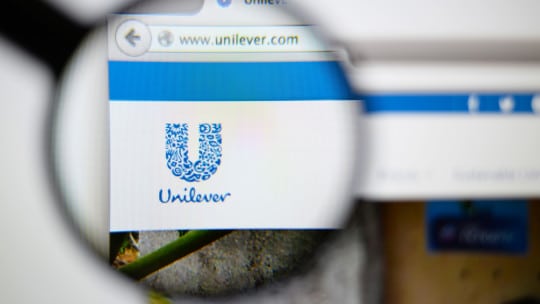
Unilever is threatening to pull ads from the likes of Facebook, Twitter and Google—but the way the consumer goods giant conveyed that message has been as powerful as the message itself.
Unilever CMO Keith Weed planned to use his keynote at the IAB Annual Leadership Meeting in Palm Springs, Calif., today as a call for improved transparency, accountability and consumer trust in digital platforms. In remarks given in advance to outlets like the Wall Street Journal and CNN, Weed says that Unilever—the world’s second-largest advertiser, boasting brands like Ben & Jerry’s, Lipton and Hellmann’s—doesn’t want to advertise on platforms that don’t make a positive contribution to society.
"As a brand-led business, Unilever needs its consumers to have trust in our brands. We can't do anything to damage that trust—including the choice of channels and platforms we use,” Weed plans to say. “So, 2018 is the year when social media must win that trust back."
Weed echoes concerns voiced at last year’s IAB annual meeting by Marc Pritchard, chief brand officer of the world’s largest advertiser, Procter & Gamble, who also lamented the rise of bots, online ad fraud and the possibility one of its ads might run alongside disturbing YouTube videos.
But the way Unilever disseminated the contents of today’s speech was a masterstroke of messaging. Here are three ways that it won the day.
Earned Media on a Monday Morning: By releasing parts of the speech to select high-profile media outlets Sunday night, the company’s words are dominating online conversations at the start of a fresh news cycle, earning more prominent coverage than any real-time reporting of the speech, set for noon ET, would've or could've generated.
And by releasing the remarks on Sunday, the London-based company also got out ahead of the European news cycle. Today’s speech would’ve been delivered at 5 p.m. in its home city.
Humanizing a Behemoth: By taking social media to task for failing to police content—whether in reference to Russian election interference or ads shown on videos that exploit children—the speech positions Unilever as a company that cares more about ethics than the bottom line.
“Social media should build social responsibility,” Weed plans to say, adding that Unilever “will not invest in platforms that do not protect children or which create division in society."
Weed plans to use the speech to argue for a continued crackdown on online ad fraud. But that message was secondary. The message that took center stage Monday morning was more about social good, framing the issue of ad fraud in broader societal terms, conveying an intellectual concern with altruistic language.
"Consumers don't care about third-party verification. They do care about fraudulent practice, fake news and Russians influencing the U.S. election," Weed plans to say. "They don't care about good value for advertisers. But they do care when they see their brands being placed next to ads funding terror or exploiting children."
Positioning Unilever as Thought Leaders: Beyond showing that it cares, the speech also positions the company as part of the solution.
Weed’s speech will ultimately focus on the lack of standard, accurate metrics in online advertising. And the latter half of the speech—after detailing societal and industry ills for context—looks to highlight the company’s own progress in curing the online ad industry’s 800-pound gorilla in the room.
Weed will detail a pilot program done in partnership with IBM that looks to use blockchain technology to reduce online ad fraud by more accurately reflecting how ads are bought, served and engaged with by a target audience.
Connect with Jerry: @Jascierto
